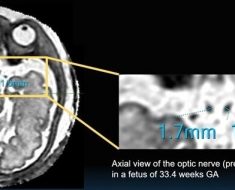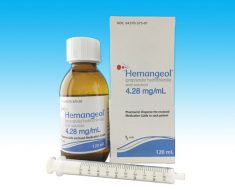NEW ORLEANS — Chimeric antigen receptor T-cell (CAR T) therapy has achieved impressive outcomes in patients with hematologic cancers, but similar results for those with solid tumors have remained elusive.
Now, a new CAR T construct that targets the tumor-specific antigen claudin 6 (CLDN6) is showing promising preliminary activity against relapsed or refractory advanced solid tumors, especially testicular and ovarian cancers, early data show.
This novel CAR T therapy, delivered as monotherapy and in combination with an mRNA vaccine engineered to boost T-cell responses, showed “robust engraftment” of T cells 6 weeks after infusion, researchers reported in a phase 1 trial.
Among 14 evaluable patients with CLDN6-positive solid tumors, six experienced a partial response to therapy — four who received CAR T monotherapy, and two who received the combination CAR T agent and vaccine, dubbed BNT211.
“CLDN6 was never targeted before with cellular therapy, but in our study, this approach is already showing efficacy that may be better than the data from other CAR T trials in solid tumors,” lead investigator Johan Haanen, MD, PhD, from the Netherlands Cancer Institute in Amsterdam, said in a press release.
On April 10, Haanen presented early data from this first-in-human open-label, multicenter clinical trial at the American Association for Cancer Research (AACR) Annual Meeting 2022.
To date, use of CAR T therapy to treat solid tumors has been disappointing. It has largely been hampered by difficulties identifying targets that spare healthy cells while maintaining an adequate T-cell response over time.
Claudin 6 represents a promising target because the protein is aberrantly expressed in various cancers, including testicular, ovarian, uterine, and lung cancer, though not in healthy adult tissue.
In the current phase 1 trial, Haanen and colleagues focused on patients with relapsed or refractory advanced solid tumors with tumor cells that expressed claudin 6.
In part 1 of the two-part study, patients received escalated doses of CLDN6 CAR T monotherapy, following lymphodepletion. In part 2, patients received escalated doses of the combination BNT211 therapy, with the mRNA vaccine (CARVac) administered every 2 to 3 weeks for up to 100 days after CAR T-cell transfer.
As of March 10, the study included 16 patients — eight with testicular cancer, four with ovarian cancer, and four with other types of tumor. At the time of data cutoff, 14 patients were evaluable for secondary efficacy endpoints.
Among these patients, four patients with testicular cancer and two with ovarian cancer experienced a partial response, for an objective response rate of 43%. The rate of disease control rate was 86%. The investigators also observed deepening of the partial responses 12 weeks after infusion.
The therapy showed particular promise in five patients with testicular cancer treated at the higher of the two doses, with one complete response, three partial responses, and one case of stable disease. This group achieved an objective response rate of 80% and a disease control rate of 100%.
In the dose-escalation phase, dose-limiting toxicities included prolonged cytopenia after lymphodepletion at the higher dose in part 1 and a single case of hemophagocytic lymphohistiocytosis at the higher dose in part 2 prior to administering the vaccine.
The researchers also reported eight cases of grade 1 or 2 cytokine release syndrome, which were safely managed with tocilizumab when needed.
Invited discussant Vincent K. Lam, MD, director of the esophageal cancer research program at Johns Hopkins University in Baltimore, called the approach “an important and exciting advance for a rapidly growing field.”
Lam highlighted several remaining questions about this novel approach, including questions regarding the optimal timing, duration, and dosing of the mRNA vaccine, as well as the need for a better understanding of tumor microenvironment interactions and mechanisms of resistance that may lead to T-cell exhaustion, greater tumor heterogeneity, or antigen loss.
Haanen cautioned not to draw any major conclusions yet because the study involves a small patient population and the results represent early data.
However, overall, Haanen concluded that the infusion of the CAR T therapy alone or alongside the vaccine “is safe and holds promise for patients with CLDN6-positive cancers.”
The study was sponsored by BioNTech SE’s subsidiary BioNTech Cell & Gene Therapies GmbH. Haanen is on the scientific advisory board of BioNTech. Lam has received grant/research funding and has provided consultation services for several entities, not including BioNTech.
American Association for Cancer Research (AACR) Annual Meeting 2022: Presented April 10, 2022.
Neil Osterweil, an award-winning medical journalist, is a long-standing and frequent contributor to Medscape.
For more news, follow Medscape on Facebook, Twitter, Instagram, and YouTube.
Source: Read Full Article





